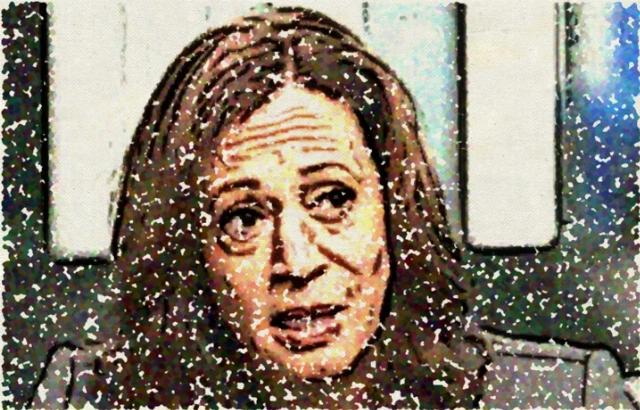
Something just doesn’t add up in the ascension of Kamala Harris to the Democrat party’s presidential nomination. A key link is missing in the chain of events.
Consider the facts of the case:
(1) By no means was Harris the first draft choice to grab the nomination, having failed to distinguish herself as a presidential candidate in 2020 or subsequently as Vice President.
(2) Within minutes of Joe Biden’s withdrawal from the race, she received his endorsement and was anointed as the putative nominee.
(3) Quotations attributed to Nancy Pelosi and Barack Obama have appeared in the press expressing, in retrospect, a preference for having had an open convention, or, in Pelosi’s reputed words, “a mini-primary.”
How do we square (1) and (2), especially in light of (3)?
Here’s my theory:
The first phase of the replacement intrigue is practically indisputable. Pelosi and Obama, in concert perhaps with Hillary Clinton and major party donors, arranged for intermediaries within the White House to goad Biden into debating his Republican opponent, Donald Trump, in July.
As expected, the incumbent’s performance was dismal. Biden, however, would not quit, believing that he would do better in the next debate.
His stubborn refusal led to phase two, the threatened use of the 25th Amendment. What does the amendment say?
Whenever the Vice President and a majority of either the principal officers of the executive departments or of such other body as Congress may by law provide, transmit to the President pro tempore of the Senate and the Speaker of the House of Representatives their written declaration that the President is unable to discharge the powers and duties of his office, the Vice President shall immediately assume the powers and duties of the office as Acting President.
The process requires the Vice President’s active participation.
One of the party honchos, let’s say Pelosi for argument’s sake, consequently got in touch with Harris. “We need you,” she said, “on the phone call or in the room with Biden. All you have to do is say you’re prepared to initiate the removal process if he doesn’t back out of the election.”
“What happens next?” Kamala asked.
“Well, we’ll hold an open convention, a mini-primary.”
“No,” Harris said.
“What do you mean no?”
“I mean either I get the nomination or no 25th amendment.”
“But Kamala, you can compete in the open convention with Whitmer, Gavin, Pritzker, or anyone else.”
“Nothing doing.”
The ghost of Joe Biden could hardly withstand the scrutiny of the campaign, much less function as chief executive for the next four years. But only a plausible threat of removal would persuade him to withdraw. Harris was indispensable to that threat. She knew it and held out for what she wanted.
Do you see the implications of this? If my analysis is correct, then the woman who would be commander-in-chief is so selfish a creature as to have allowed her party to enter the election with a discredited, incapacitated nominee had she not gotten her way.
That’s what she’s really like.
Can I prove any of this in a court of law? No, not without taped conversations or witness testimony. But I predict that should Harris lose, you will hear rumblings from Pelosi and Obama more or less corroborating what I’ve just written.
Meanwhile, take another look at the three facts posited above and review my theory of the case. As my favorite fictional detective, Nick Charles of “Thin Man” renown, would say, “It’s the only way any of this makes sense.”
